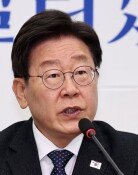Bhutan's happiness level
Bhutan's happiness level
Posted May. 30, 2017 07:20,
Updated May. 30, 2017 07:23
Former Bhutan King Jigme Singye Wangchuck said in 1972 that gross national happiness (GNH), is more important than the gross national product (GNP). After he said so, Bhutan's national policy focused on four pillars including sustainable development, preservation and promotion of culture, environmental protection and good governance. In 2015 when the Bhutan government surveyed GNH index, 91.2 percent of the population said they were happy. Per capital national income was less than 3,000 dollars and people were still happy, while people were defecating everywhere due to lack of toilets.
March 20 is the International Day of Happiness designated by the UN. The Sustainable Development Resolution Network under the United Nations nnounced world happiness index Monday, and placed Korea at a relatively bottom side in happiness level at 56th. Northern European countries such as Norway, Denmark, Iceland and Finland were listed on top. Bhutan ranked 97th, falling 13 notches from 84th last year. In fact, Bhutan's happiness ranking has been falling continuously.
In Bhutan's GNH index, emotional happiness is important. the UN's index also started based on the limits of comparing countries only on economic power. Yet the UN laid importance on objective indexes to measure happiness rather than individual responses. Per capita GDP is still considered as the basis of happiness. However, this is insufficient, and therefore social indicators, including life expectancy, and political indicators, such as freedom and tolerance, were added.
President Moon Jae-in ordered development of Korean-style happiness level referring to the Bhutan's case. He appears to have been inspired when visiting Bhutan while Himalaya tracking. Human beings can feel happy even if they are poor and even under dictatorship. If the president wants to make people more happy, there is no reason to oppose to it. Yet it is a wonder that the president wants to benchmark Bhutan when there are better models such as those in northern European countries.







